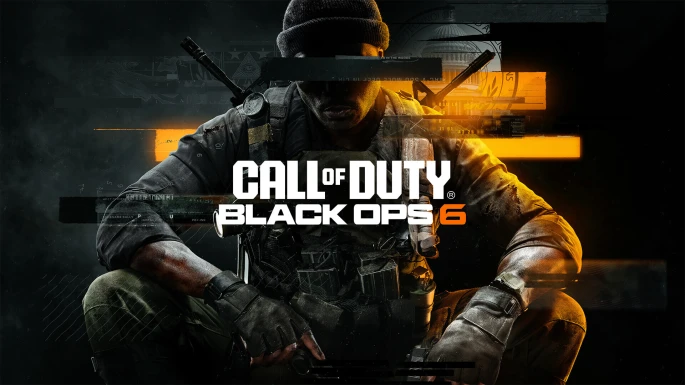Activision is suing the creators of a well-known Call of Duty hack that it claims is so “toxic” that players are completely abandoning the PC version of Black Ops 6.
IGN has seen the case, which was filed in the Central District of California and targets two Call of Duty hackers that Activision has been attempting to stop for a while: Lergware and GameHook.
Both hacks have a number of self-described “toxic” capabilities, such as the ability to “kick” other players off Activision’s multiplayer servers (also known as a “rage” cheat) or even cause multiplayer servers to fail completely.
READ MORE: This Month, GTA VI’s Debut Trailer Will Be Unveiled
Additionally, “ESP Bots,” which detect opponent positions and enable players to see past walls or other obstacles, and “aimbots,” which make weapons automatically hit opponents, are two ways that GameHook allows gamers to cheat.

In its lawsuit, Activision identified Ryan Rothholz, also known online as Lerggy, as the original developer of Lergware. According to Activision, Rothholz, a resident of Antioch, Tennessee, created and distributed Lergware in 2021 or 2022, charging $25 for it on his website. Then, in 2023, Rothholz supposedly modified Lergware to make it compatible with Warzone and Call of Duty: Modern Warfare 2. “Some users posted warning messages online as a result of the update, which caused online player ‘attacks’ to become more frequent,” Activision stated.
Activision responded by sending Rothholz a cease-and-desist letter in June 2023. Activision said that in retaliation, Rothholz “openly mocked Activision” by posting the letter to a Lergware-focused Discord channel.
However, Rothholz “just changed his online alias and distributed his source code to other video game hackers” after agreeing to abide by the cease-and-desist later in June.

In the lawsuit, Activision accused Rothholz of developing a new Call of Duty hack, the so-called GameHook, and enlisting two more people, Jordan Newcombe Boothey (“Bossnight55”) of Whyalla Stuart, Australia, and Collin Gyetvai (“Cid”) of Carbondale, Pennsylvania, to serve as “resellers” of GameHook.
Activision said that GameHook was made accessible for a number of Call of Duty games, including Black Ops Cold War, Modern Warfare 2, Modern Warfare 3, and Black Ops 6 from the previous year. For each Call of Duty game, GameHook costs at least $50. A lifetime “master key” that allows you to use all GameHook versions for all compatible Call of Duty games costs $375. “Hundreds, if not thousands,” of people purchased GameHook and used it to hack in Call of Duty games, according to Activision.
READ MORE: A Small Part Of The Opening Screen For GTA V Shows How Long We’ve Been Waiting For The Sixth Game
To the harm of Activision and its player base, the lawsuit asserts that “Activision is informed and believes, and on that basis alleges, that Defendants have received significant revenue from their activities.”
Activision claimed that although it had offered the defendants a chance to abide by its conditions out of court, “each has ignored Activision’s outreach, necessitating this lawsuit rather than engage with Activision.”
For instance, Activision filed cease-and-desist letters to Rothholz and the other defendants in March 2025. Although their online stores were shut down, none of them promised to stop making or selling Call of Duty hacks, and none of them provided Activision with copies of the GameHook source code.

Activision stated that it thinks Rothholz, Gyetvai, and Boothey are still selling or distributing the GameHook hacks and additional Call of Duty hacks via the GameHook Discord server or private channels.
The lawsuit also claimed that Activision had evidence that Rothholz, Gyetvai, and Boothey planned to “re-brand” GameHook and sell the GameHook COD Hacks or comparable COD Hacks under a different name and under different online aliases.
“Activision has made an informal effort to contact Rothholz, Gyetvai, and Boothey; however, they have not replied to Activision’s correspondence. Activision was forced to bring this action as a result.
Activision seeks punitive damages, monetary damages, and injunctive and other equitable relief against the defendants. Millions of dollars could be lost, according to the report.
READ MORE: What Did We Learn From Grand Theft Auto 6’s Second Trailer?
Activision claimed that the defendants’ actions damaged its brand and caused a large decline in customer loyalty. According to information and belief, GameHook has caused gamers to stop playing or avoid the PC version of Call of Duty: Black Ops 6 because it has been so annoying to COD players that it has garnered a lot of attention on social media.

Because Call of Duty is such a well-known shooter game with a free-to-download battle royale, it has a reputation for cheating. Cheating is more common on PCs (Activision recently acknowledged this, even going so far as to say that if you feel that a console player has unfairly killed you, it’s much more likely that they’ve employed “intel advantage” than cheats). In order to eliminate the possibility of PC cheats spoiling their day, some console players go straight to Call of Duty’s settings and disable crossplay altogether. Activision even introduced additional console-only crossplay options for standard multiplayer with the release of Season 3, but PC gamers who do not cheat said they were being unfairly penalized.
With several recent high-profile victories, Activision has reportedly spent millions of dollars fighting Call of Duty cheaters, cheaters, and cheaters. This information was published by IGN. When Phantom Overlay announced its closure in March, many were shocked that such a well-known source of Call of Duty cheats could go out of business. In March, IGN also revealed that four cheat sites had been shut down in advance of Verdansk’s eagerly awaited return to Warzone.
Activision said this week that it has “disrupted” more than 150 cheat sellers in the same time frame and has closed down five more cheat makers since its last progress report, adding to the 20+ cheat makers it has closed since Black Ops 6 was released last year, amid growing complaints about cheating in Warzone and Black Ops 6. In a move largely seen as targeting Cronus users, Activision also announced that it had sent cease-and-desist orders to a number of businesses that manufacture and distribute third-party hardware used to cheat in Call of Duty games.
Activision takes Call of Duty cheating very seriously since it understands it can significantly affect its financial results, as one part of the lawsuit explains:
Activision puts a lot of effort into making ensuring that the COD Games provide players with constantly engaging experiences so that players will stay interested in the games, play them for extended periods of time, and look forward to more releases. Players may become dissatisfied with the COD Games, lose interest in playing and supporting them (by buying new games and merchandise), or even quit playing altogether if they believe that a game is unfair or that the multiplayer experience is not functioning properly, including because other players are cheating, interfering with, or hacking multiplayer servers. Therefore, cheating and hacking affect Activision’s capacity to provide the fast-paced, reliable, and excellent online gameplay that millions of fans have grown accustomed to from Activision and the COD Games, in addition to hurting (and maybe destroying) COD player communities.
Step into the ultimate entertainment experience with Radiant TV! Movies, TV series, exclusive interviews, live events, music, and more—stream anytime, anywhere. Download now on various devices including iPhone, Android, smart TVs, Apple TV, Fire Stick, and more!


